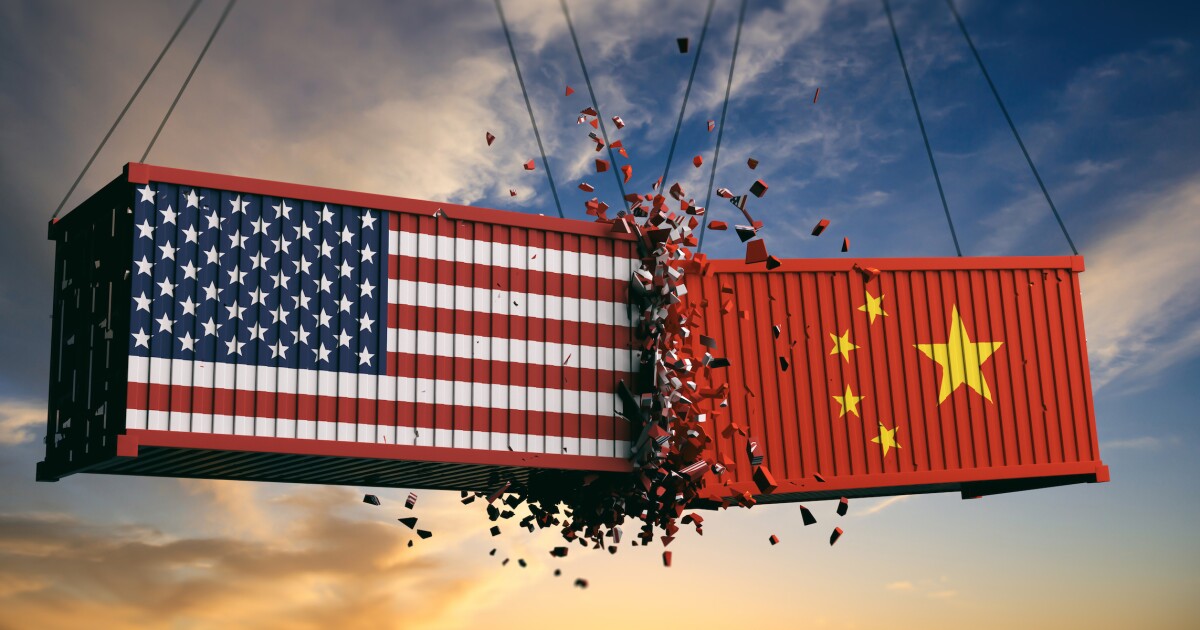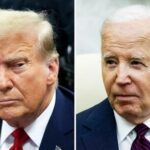

The trade rivalry between the United States and China ratcheted up this week with the world’s two largest economies weighing new restrictions that experts say are a sign of more pressure to come.
Competition between the two powers intensified during the Trump administration, which imposed new tariffs and trade barriers against Beijing. And while there have been some differences under the Biden administration, this week, it was reported that the government is gearing up to restrict Chinese companies’ access to U.S. cloud-computing services.
BIDEN ANNOUNCES SWEEPING ‘BIDENOMICS’ PLAN TO REDUCE HEALTHCARE COSTS
The Wall Street Journal reported the U.S. will soon require U.S. cloud-service providers (like tech giants Microsoft and Amazon) to get government approval before providing Chinese companies with cloud-computing services that use advanced artificial intelligence chips.
Also this week, China announced it would restrict certain metals used in the production of semiconductor chips, in a threat to U.S. supply chains. The metals include gallium- and germanium-related products. Semiconductor chips are crucial to technological superiority and used not only in a consumer capacity but also are needed by the U.S. military.
Robert Sutter, an international affairs professor at George Washington University’s Elliott School, said the economic competition between the U.S. and China is poised to intensify.
“The catalyst, if you will, is that over the past … really six years now, the U.S. has fundamentally changed its approach to China, and it’s very competitive,” he told the Washington Examiner.
Sutter added that he thinks there is strong momentum behind this more aggressive approach toward China, and while major corporations might not like the competition in many cases, it seems to be prevailing.
“And if you’re going to do this effectively, more is needed, and so they’re going to do more, it seems to me,” he said about the pressure.
Former U.S. Trade Representative Robert Lighthizer, who just released a book on trade policy and confronting China, told the Washington Examiner during a Friday interview that he hopes the U.S. makes moves like restricting cloud computing access for Chinese companies.
In his new book, Lighthizer calls for more tariffs to be levied against Beijing in order to rebalance trade. He said there should also be further restrictions on technology coming out of China. The U.S. is playing into the hands of China by transferring technology and importing their technology stateside, Lighthizer contends.
“I think some level of decoupling is inevitable,” he remarked.
He said China will continue to try to export as many goods as it can in order to generate a trade surplus but also pointed out that Beijing will increasingly begin restricting supplies of resources and technology that the U.S. could use strategically.
“They are locking up future production of a whole variety of products,” he said.
Lighthizer said the battle over technology is critical because of the military and warfare implications involved. Lighthizer said it is “insanity” that some components of U.S. military technology are originally sourced from China and the U.S. must break its reliance on imports for some of that technology.
Treasury Secretary Janet Yellen’s visit to China this week was aimed at smoothing over some economic relations with China, although she took aim at “punitive” actions by China against U.S. companies.
“During meetings with my counterparts, I am communicating the concerns that I’ve heard from the U.S. business community — including China’s use of nonmarket tools like expanded subsidies for its state-owned enterprises and domestic firms, as well as barriers to market access for foreign firms,” Yellen said on Friday.
“I’ve been particularly troubled by punitive actions that have been taken against U.S. firms in recent months,” she added.
But it was notable that the visit still coincided with the punitive action that China took against the U.S. by announcing the export restrictions on gallium and germanium products.
Michael O’Hanlon, a senior fellow and director of research in foreign policy, told the Washington Examiner in an email that China has concluded that “laying back and taking it is no longer an optimal strategy.” He said that while he doesn’t necessarily think China is yet mounting a big pushback campaign when it comes to the metals, the situation could intensify in response to further U.S. action.
Lighthizer said that the trajectory of the U.S. trade relationship with China under the Biden administration heavily favors Beijing. While military escalation is not something that should be pushed for, the direction of U.S. economic policy should be changed to give the U.S. the upper hand in the rivalry, he said.
“The current trajectory has to be changed. Stabilizing it in its current course will make us number two in the world,” Lighthizer said.
CLICK HERE TO READ MORE FROM THE WASHINGTON EXAMINER
Looking ahead, there are several things, particularly in tech, the U.S. needs to prioritize in its competition with China, experts say. For instance, making sure there are sources of rare earth elements from outside China and developing chip technology here in the U.S.
Victoria Coates, a senior research fellow at the Heritage Foundation and former official in the Trump administration, told the Washington Examiner that artificial intelligence is a big priority for the U.S. in the competition as well as anticipating China’s next moves.





